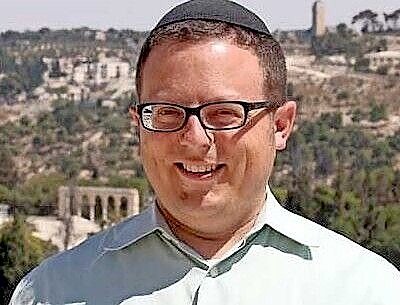Paradox of Jewish double standards
At one time or another, we’ve all heard a Jewish comedian tell an anti-Semitic joke — and we cringe. While such jokes are often funny, they also perpetuate anti-Semitic stereotypes we would be better off without. They can be funny in a comedy club, but inevitably become dangerous when they are adopted by genuine anti-Semites.
This illustrates an interesting and perhaps puzzling double standard: The same joke that, if told by a non-Jew, would result in accusations of anti-Semitism, receives belly laughs when told by a Jew.
Jews, of course, know a great deal about double standards. Indeed, double standards and anti-Semitism often go hand-in-hand. They are almost constant in debates about issues related to Israel, such as the IDF’s conduct of its wars, Israeli immigration policies and the treatment of the Palestinian Arabs. Put simply, the world holds Israel to one standard, and everybody else in the world to another.
Double standards are usually a product of hypocrisy. This is the case even with the close alliance between the US and Israel. For example, the American military uses drones to assassinate targets in civilian areas, which often leads to civilian deaths. Yet the US sometimes criticizes Israel for doing exactly the same thing, usually with far less collateral damage.
However, the issue of double standards is more complicated than it appears. This is because Jews also hold themselves to a different standard.
Jews maintain that they are the uniquely chosen people. This does not mean that Jews are inherently special, but rather that they are charged with the responsibility of being a light unto the nations, a model of exemplary behavior. To meet this requirement, every Jew must hold themselves to a higher standard than others, almost by definition. The opportunity to sanctify G-d’s name and the commandment to avoid desecrating G-d’s name demand nothing less.
• • •
The early Zionists understood that the state they sought to build would be unlike any other. While this state would be a member of the global community like all other countries, it would also be a Jewish state — more than just a “state for Jews,” it would be a state whose society was consistent with Jewish values. Exemplary ethical behavior would be one of its top priorities.
Today, Israel often does hold itself to a higher moral standard than the rest of the world. War is a terrible thing, but Israel makes an honest and sometimes hazardous effort to conduct it in an ethical manner. Often, this prioritizes the lives of civilians, and potentially enemy combatants, over those of IDF soldiers.
This sense of an ethical imperative is even more apparent in Israel’s humanitarian efforts. For example, it establishes field hospitals in the world’s worst disaster zones and opens its borders to refugees from Africa to Ukraine.
All of this, however, leads us to a paradox: Israel holds itself to a higher standard, but when other countries — or organizations and individuals — hold Israel to a higher standard, this is seen as anti-Semitism. At first glance, this appears to be a contradiction.
It is not.
Jews may hold themselves and Israel to a higher standard, but no one else has the right to do so. This standard is how the Jews have decided to judge their own behavior. It is for domestic use only. The larger world has its own set of standards and, of course, must apply it equally to all. The Jews’ decision to adhere to a higher standard does not give the world the right to deviate from its own standards, which it holds to be universally applicable.
However, this does not mean Israel should stop holding itself to its own standard. Many argue, for example, that Israel should never put its own soldiers at risk by holding them to a higher moral standard than any other army in the world. But if Israel acted like any other nation, it would forfeit its role as the exemplar of moral behavior it is required to be as a Jewish state.
Israel isn’t and will never be a nation like all other nations. It has a unique role in the global community, and must act accordingly.
Rabbi Uri Pilichowski is a senior educator at numerous educational institutions. He is the author of three books and teaches Torah, Zionism and Israel studies around the world.

 60.0°,
Overcast
60.0°,
Overcast 





